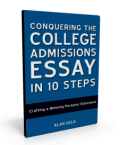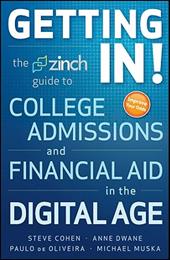To many students and parents the college search, application, and decision process can be very overwhelming. Students work with their high school counselors, siblings, and friends to figure out which school is the right “fit” for them … all the while not truly understanding what happens on the “other side of the table” at the colleges they looking at.
For admissions representatives it is getting harder and harder to truly get to understand what motivates a student as well. With the advent of the Common App and easy to complete online applications, schools are seeing a surge in application numbers while still trying to figure out the best way to personalize the admissions process for the students that are truly interested in their school.
Enter Zinch.

Zinch.com is a social communication platform that enables students to better manage their college search, while allowing college admissions representatives to connect with students that are interested in their school. Using Zinch a student can create their first professional profile to “showcase themselves” during their college search.
Traditionally colleges have recruited students with partnerships with the College Board and ACT to segment students by their standardized test scores, get a list of student names, and send recruitment messages. This practice fuels the misconception that the most important thing schools look at is a student’s SAT or ACT score during their admissions decisions. On Zinch, students are more than a test score. Colleges on Zinch (close to 1,000 of them) reach out to students based on their interests, the type of school(s) they are most interested in, extra-curricular activities, and more … making a student with a complete profile attractive to colleges!
Zinch makes admissions social as well. College Admissions Officers have profiles that they use to respond to student questions on their school’s page, reach out to students from their geographic area, and be “on call” to answer questions a student has about their application process, financial aid, or anything else they can think of while they are looking at schools. This breaks down the barriers of a traditional “one way” college search. All of this in addition to close to $2 Billion in scholarships to apply for, study abroad and test prep opportunities to explore, and educational discounts on computers and books exclusive to Zinch members.
Zinch is free to join, and searching for schools or scholarships does not require a registration. Students only register when they are ready to apply for scholarships and reach out to specific schools.
See you on Zinch!
*****************
Today’s guest post was submitted by Gil Rogers, Director of Marketing and Outreach for Zinch.com. Gil recently joined Zinch after nearly 5 years at the University of New Haven in West Haven, CT where he served as Associate Director of Admissions and Enrollment Technology. While at UNH Gil supervised the undergraduate admissions recruitment staff, as well as reviewed application for admission to the university.










